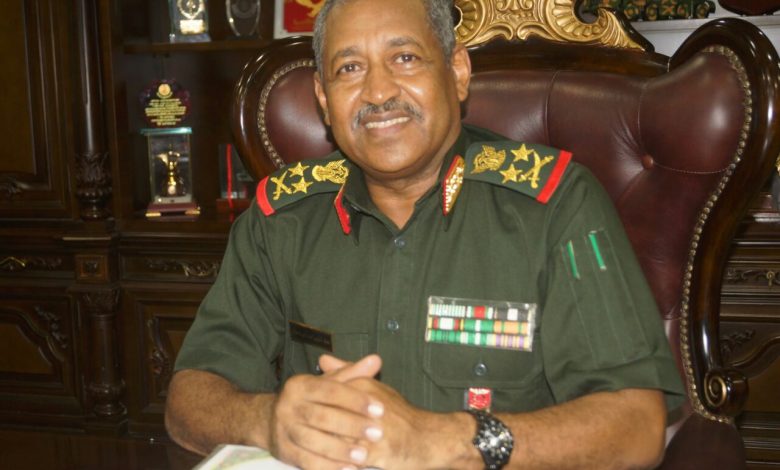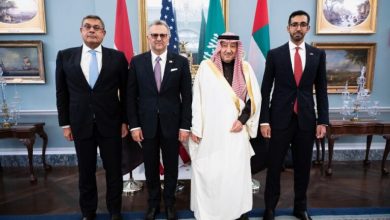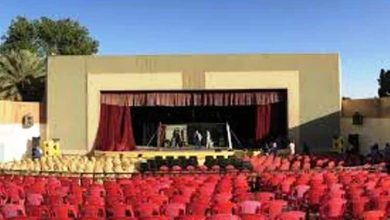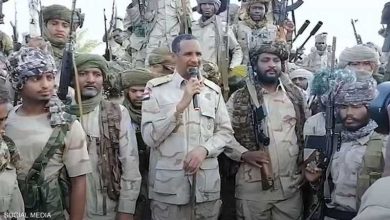Ambassador to Egypt….Lieutenant General Adawi… for Special Diplomatic Missions

Sudan Events – Abdul Basset Idriss
Sudan nominated General Imad Mustafa Adawi for the position of ambassador to Egypt.
According to “Kandaka News”, the Egyptian authorities agreed to nominate Adawi as Extraordinary and Plenipotentiary Ambassador.
Meanings of nomination and acceptance:
The nomination of Lieutenant General Adawi by the state leadership in itself, represents a message that reveals the inclinations and orientations of the armed forces during the next stage, that there are tendencies to entrust the administration of the state to national competencies, and on the other hand, to the nature of the special relationship that links the two military institutions. Khartoum knows the mood of Cairo and knows that managing of its relations with Sudan are managed according to the standard of the determinants of its national security by figures with military backgrounds, so Egypt’s approval of Adawi comes as an indication of the possibility of constructive communication with the new Sudanese diplomat who knows what each party wants from the other.
Features and tasks:
What distinguishes Ambassador Imad Adawi most is that he is a balanced, disciplined man, and by virtue of his long service in the military, and based on the nature of the tasks he was exposed to, he usually does not take matters lightly, as he sat in the position of Chief of Staff of the Sudanese Army, and before that, he held the position of Director of the Numeiri Military Academy and Director of the International Relations Administration at the Ministry of Defense, and his familiarity with the rules of command, control, and crisis management. These accumulated experiences made him a person with a cold mind who dealt with the most heated and complex issues. This was evident in managing public and sensitive functional negotiations with major countries such as China, Russia, and the United States, in addition to his participation in the political and military discussions of the leaders and generals of the “Decisive Storm” coalition countries against the Houthis in Yemen, this is in addition to the most important dossier he worked on in managing the crisis with the state of South Sudan, as Adawi was one of the most prominent negotiators on the part of the Sudanese government in the Addis Ababa talks that resulted in a Cooperation Agreement between Khartoum and Juba, including the 9 freedoms between the two countries.
According to military sources who spoke to Sudan Events, Imad Adawi remained the closest to the Commander-in-Chief of the Army and the Chairman of the Sovereign Council, Lieutenant General Al-Burhan, and one of the people he has met regularly since Al-Burhan took over the reins of the country.
Strategy and framework:
Ambassador Adawi will have a fundamental task, which is the extent of his ability to maintain the strategic framework regulating the relations of the two countries, which was carefully drawn up by the two armies, as this framework has maintained the balance of relations and controlled their compass in a way that does not disturb their balance or lead to a clash between the two countries, leaving it to the successive governments in Khartoum. Cairo is an area of convergence and difference, but all of that is subject to being under the roof of this framework and its security and military foundations. Preserving and developing this framework is in the interest of enhancing the balance of power for Sudan to become an economic and political actor in the region, not just in its neighbourhood.
Solid Ground:
The chances of Adawi’s success in his new mission appear to be greater than other ambassadors who held the position and faced many problems, and not because Adawi is close to the leaders of the military establishment who control the decision-making in Khartoum, but because the most important factor is the positive Sudanese popular view towards Egypt. The war in April 15 of last year, revealed that the Sudanese voted with willingly in favor of Egypt, which has hosted nearly 300,000 refugees waiting to be registered with “official” procedures, in addition to about 5 million Sudanese residing in Egypt officially, and according to (Sudan Events) follow-ups, the Sudanese presence has revitalized the Egyptian real estate market. It contributed to the influx of foreign currencies. Despite the threats this heavy presence poses that may push the Egyptian side to take sovereign measures at some stage, the popular trend is described as the most helpful for any official diplomatic missions.
Most prominent challenges:
Ambassador Adawi faces political and economic challenges and more pressing issues, but he is of course entrusted with this mission to accomplish special and highly secret tasks that may not come to light. However, political analyst Jalal Faleh Al-Qaddal tells (Sudan Events) that the first political mission of Ambassador Adawi that must be worked on is Ensuring that Egypt is not neutralized, in light of the war and major targeting that Sudan is facing, Al-Qaddal points out that exploiting Egypt’s regional position to attract international support for the Sudanese issue, the victory of the people, and the unity of the country are among the tasks that Ambassador Adawi should work on.
Al-Qaddal believes that Egypt is one of the countries that has the deepest knowledge of the Sudanese crisis, and therefore it must understand that it will be welcome to play any supporting role for Sudan in this war.
Economic challenge:
On the other hand, Adawi will have the task of working to mobilize Egyptian support and attract the construction sectors in favor of rebuilding what was destroyed by the war, as well as developing economic cooperation relations between the two countries.
Economic analyst Dr. Awad Ismail told (Sudan Events) that the volume of economic cooperation and trade exchange is considered the weakest compared to the political and media hype surrounding the relations of the two countries. Awad infers by saying that the volume of exchange between the two countries reached 1.4 billion dollars last year, as the volume of Sudanese exports to Egypt reached 954 million dollars, while Egypt exported with a value of $979 million. Awad believes that economic growth is the primary meaning of developing relations. Awad called for the new ambassador to work on developing executable economic plans, especially in the field of wheat cultivation, to benefit relatively from the value of Egypt’s purchase of wheat from international markets, in addition to benefiting from Egypt’s great economic capabilities, especially in the field of infrastructure and electrical energy, to benefit from Egypt’s electricity in the Sudanese industrial sector. .



